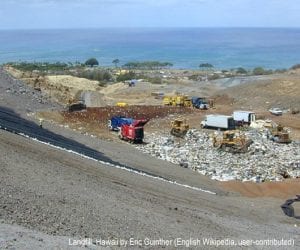Relatively speaking, the world’s oceans are an ecosystem that humans have discovered little about and remain one of the last frontiers of exploration. We harvest many natural resources from our seas and unsustainable fishing practices are pushing numerous fish species to the brink of collapse. The warming of the oceans affects coral, algae, and plankton and puts them at risk of dying out, impacting species up and down the food chain. The effects that humans have on our oceans are not as transparent to us as the impacts we can see in other environments. But that doesn’t mean that nothing is happening, as this Washington Post article points out.
We have previously discussed the sixth extinction, an ongoing extinction event that is caused by human activity, on our blog. Mass extinctions in the past have been caused by events – an asteroid colliding with the Earth or a massive volcano eruption. The fact that human actions are the driver this time is what makes this extinction event different. There is now a two-fold risk to our oceans: the effects of climate change and the also effects of our activities. In the article, the author explains that the larger species in our oceans, such as whales, sharks and tuna, are going to be affected first because they are facing double threats of overfishing and ecosystem destruction. A changing ocean climate due to warming and acidification acts as a multiplier.
Ocean protections and conservation measures have been increasing. President Obama recently created a marine monument in the Atlantic Ocean, the Northeast Canyons and Seamounts Marine National Monument, a 4,913 square mile protected area off the coast of Cape Cod and the first monument in the Atlantic Ocean. Obama also expanded the protected area of Papahānaumokuākea Marine National Monument in Hawaii, which now is the largest protected marine area on the planet.




